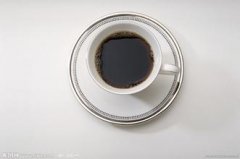The introduction of French coffee culture is not in the coffee shop, but on the way to the coffee shop.
Coffee plays an important role in the daily life of the French. Coffee is as important to the French as tea is to the Chinese. As we all know, coffee has become an important drink sweeping the world. The mellow aroma of coffee makes people infatuated and makes people have endless aftertaste in the realm of selflessness. The French said that I was not in the cafe, but on the way to the cafe. A seemingly simple joke is a true portrayal of French life. Because coffee has really become a necessity of French life, breakfast, eating delicious croissant, to a cup of sweet milk coffee is really a kind of extreme enjoyment; lunch break, after work, a cup of coffee refreshed, refreshed to continue to work; in the evening after a big meal to drink a cup of expresso to help digestion is also very good for health. French coffee pays attention to the environment and sentiment, now, coffee has become a kind of culture, a kind of elegant, relaxed, meditation, enjoy life, pay attention to taste of a kind of life culture. Drinking coffee is to experience elegant taste, romantic style and poetic realm. Today, let's learn more about French coffee culture.

I. the origin, types, production methods and efficacy of coffee
There are different opinions about the origin of coffee, and there is no unified view so far. Among the countless coffee discovery legends, Christianity has found that "the story of shepherds" and Islam that "Arab monks" are the most widely spread. But historians agree that coffee was born in Ethiopia. Coffee was introduced into France by the Turkish ambassador in 1669. After that, coffee culture took root and developed in this hot land. It can be said that although France is not the birthplace of coffee, the French pushed the cultural tide of coffee to its peak. It can be said that the French drank coffee to the extreme. While inheriting the coffee production and types of other countries, the French have also further promoted the production process of coffee. In France, people can drink many kinds of coffee, all kinds of pure coffee and all kinds of fancy coffee, of which the royal coffee is the most distinctive made from brandy. The production methods of all kinds of coffee are very different, such as high-pressure distillation, brewing and siphoning, etc. When drinking coffee, take a sip before adding sugar and milk, taste the aroma of pure coffee, mix sugar, milk and so on with coffee, gently stir the liquid, and then drink. Drinking coffee can relieve fatigue, clear your head, help digestion, and even prevent diseases such as gallstones. It can be said that there are many kinds of coffee and a variety of production methods, but it does have the effect of strengthening the body, which may be one of the reasons why coffee is so popular with the French.

Second, the place and environment for drinking coffee
Cafes are everywhere in the streets of Paris, whether it is the Marini Street around the Elysee Palace, the Champs Elysees, or the narrow alleys of Montmartre Heights. Especially at the intersection of the two streets, the coffee shop is often the best place to operate. Crimson shop tips, awnings and umbrellas are the uniform clothes of Paris cafes; crimson table blankets, chair covers and napkins are the interiors of the cafe. They are as warm as coffee, in sharp contrast to the shade of French sycamore, coupled with the aroma of coffee in the air, three-dimensional stimulation of the senses of visitors. The Paris Cafe moved many painters, and French impressionists created many well-known masterpieces. The Paris Cafe not only occupies the best crossroads and the Golden Triangle, but also often extends coffee seats and umbrellas to the sidewalk to allow pedestrians to step aside. Coffee shop business is so good, in addition to the main cause of social and cultural traditions, the price of ordinary people is also a factor. A cup of coffee usually costs about three euros, and the most famous cafe does not exceed five euros, which is nothing for the French who earn an average monthly salary of more than 1,000 euros and a minimum wage of more than 800 euros.
III. The significance of coffee to the French and its influence on the daily life of the French
Through drinking coffee, people enjoy a quiet life and experience strange feelings, which can be proved by the number of cafes all over the street, which is not only for the needs of health care, but also a kind of cultural satisfaction. is a high-grade cultural leisure. Push the door into a chic cafe, taste a cup of mellow coffee, leisurely, enjoy the bustling crowd, full of romantic atmosphere. If in China, coffee is a kind of petty bourgeoisie sentiment, the expression of fashion life, compared with France, coffee is definitely a civilian activity with the participation of the whole people. Coffee shop is like a synonym for France, French coffee shop is a part of French daily life, whenever necessary, people can go in for a drink, or rest, or recreation, or study, or meet friends, is the place where people go most frequently. It is conceivable that the days without coffee and cafes would be the end of the world for the French. Because this is the French way of life, is the romantic feelings of the French, because of their nature, it is impossible and will not change the habit of drinking coffee. Walking along the streets and alleys, you will find one cafe after another, where you will see the kind and peaceful faces of many Parisians and experience the slow flow of time in this noisy city. The cafe is an extension of people's life and plays a wonderful role in regulating the pace of life. People come to the cafe to read newspapers, read books or be in a daze, or even come to do unfinished work in the office. Many coffee lovers, at dawn, patronize the cafe before they go to work. They lean on the counter to drink a small cup of freshly brewed espresso, skim through the newspaper of the day, and then go to work at 9 o'clock. At 1: 00 noon, almost every cafe is crowded, where Parisians stand and rush for lunch or drink. Parisian lunch is simple, mostly sandwiches with medium or large milk coffee. When it comes to getting off work, many Parisians may stop in the cafe for a while and enjoy a cup of coffee or white wine before going home. Parisians can't live without coffee. Imagine what it would be like if Paris lost its cafe, even for a minute.
Coffee and French Culture
The coffee industry not only promotes the French economy, but also is closely related to French culture for centuries. It is not difficult to find historical sites and cultural landmarks in Paris, France. Perhaps the unattractive small cafes around them used to be frequented by celebrities. Wandering among the Cafe Cafe in Paris, France's splendid culture, art and history seem to be within reach. Balzac, a great French writer, once wrote: "the counter of the cafe is the parliamentary hall of the people." The French Revolution, the Enlightenment, Existentialism and other political, social and cultural thoughts all moved from the cafe to the society. Since the beginning of the 17th century, in France, especially in the upper class, there have been many cultural and artistic salons formed by coffee. By the age of enlightenment in the 18th century, the cultural center of gravity has appeared in various salons, clubs and cafes. The Cafe Prokopu is the first cafe to open in Paris. Thinkers Voltaire, Rousseau and Diderot are all regulars of the cafe. Several of Voltaire's works and Diderot's world's first encyclopedia are all completed here; literary giants such as Hugo, Balzac, George. Sang, Zola and others also founded the literary publication Prokopu under the name of a cafe. The "God of Flowers" Cafe is one of the three famous cafes in Paris. In the 1920s, young Zhou Enlai often went to the "God of Flowers" cafe near the small hotel where he lived to drink coffee and write articles. Picasso, Sartre, Breton and the politician Trotsky all drank coffee there. The Flower God Cafe even has a literary scholarship and reserves a special seat for the winners on the second floor for a year, and displays a coffee cup engraved with the winner's name forever in the cafe. In addition, Duras and Xu Zhimo, the authors of the French novel Lover, often come here. The College Cafe in Montmartre, a symbol of the 19th century University of Paris, has long been inhabited by artists from all over the world, building a shrine and spiritual home for writers and artists all over the world. It reached unprecedented prosperity at the beginning of the 20th century, where Picasso, Hemingway, Van Gogh and Freud worked out their dreams and spent their youth. French coffee has a great relationship with its own cultural heritage. The strong cultural flavor here is like the fragrance coming out of the coffee cup, which can be smelled and within reach. It can be said that without the fertile land of the nation, there can be no unique food culture, and in turn, the outstanding food culture has added endless charm to the nation of France.
Coffee is an integral part of French culture, and coffee is the darling of Paris.
Important Notice :
前街咖啡 FrontStreet Coffee has moved to new addredd:
FrontStreet Coffee Address: 315,Donghua East Road,GuangZhou
Tel:020 38364473
- Prev

According to Italian coffee culture, men should be like a good cup of coffee.
Italians are so enthusiastic that they should pay attention to two things when they come to Italy: one is men, and the other is coffee. The relationship between Italy and coffee can be traced back to the 16th century. Coffee was introduced into Italy with the booming trade between the port of Venice and North Africa and Egypt. At that time, Catholicism thought it was Islamic wine, that is, devil's drink, and tried to ban it, but the Pope tasted it and thought it could be drunk.
- Next

Introduction of French Coffee Culture Paris Cafe is full of guests from morning till night
You have been to Paris, the flower capital of the world. Perhaps you have visited the Louvre, climbed the Eiffel Tower and visited the Seine by boat. These famous cultural landscapes make you unforgettable, but have you ever paid attention to the cafes in Paris? It's also an integral part of French culture. It may not be abrupt or novel, but through it you can touch the French.
Related
- How did the Salvadoran coffee industry develop in Central America?
- What exactly does the golden cup extraction of coffee mean?
- The Origin of Coffee flower
- [2023 Starbucks World Earth Day] there are more meaningful things besides free Starbucks coffee!
- What kind of coffee is there in Spain? 9 Flavors of Spanish Coffee
- Aromatic African coffee| Kenya's coffee culture and historical production area
- Liberica Coffee Bean knowledge: the characteristics of Liberian Coffee beans of the three original species of Coffee beans
- The origin and formula of Spanish latte introduces the taste characteristics of Bombon coffee in Valencia, Spain.
- How to adjust the solution of over-extracted coffee
- What is the tasting period of coffee beans? What is the period of coffee and beans? How should coffee wake up and raise beans?

